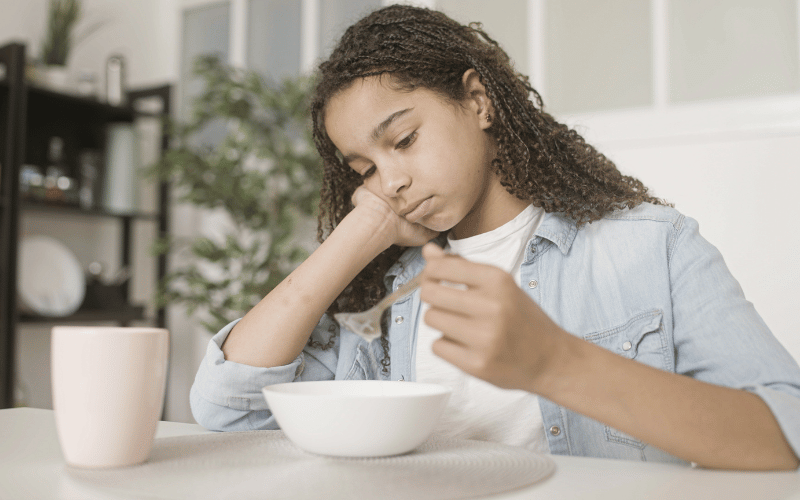Symptom 4: Loss of Appetite – A Natural Reaction

Loss of appetite in children suffering from HFMD is not just a mere whim; it’s a genuine concern backed by physical discomfort. Imagine the sensation of trying to swallow food or even liquids when every gulp brings a sting from those painful mouth blisters or the soreness in the throat. The decline in the desire to eat is a visceral response to this discomfort. This symptom is often the most telling, especially in younger kids who might not be able to verbally express their pain.
When a child stops eating, it’s not just the immediate hunger that’s a concern. Nutrition is the bedrock of a growing child’s health. Consistent neglect of diet can lead to weakening immunity, thereby prolonging the illness. Loss of essential nutrients, vitamins, and minerals can also make a child more susceptible to other infections. Thus, ensuring they get even a minimal diet is of paramount importance.
Recognizing this challenge opens the door to improvisation. Traditional meals might not work, and that’s okay. The focus should shift to softer, more palatable options. Think along the lines of porridges, broths, smoothies, or even yogurt. These foods don’t just provide the necessary nourishment but are also gentle on the afflicted areas, making eating a less daunting task for the child.
It’s not just about the solid foods. With HFMD, dehydration can sneak in, especially if the child is reluctant to drink due to mouth blisters. Regular sips, even if they’re tiny, can be a game-changer. Water is, of course, the go-to, but one can also consider mildly flavored electrolyte solutions, which can replenish lost salts, especially if the child has had bouts of fever.
Every child’s appetite cycle during illness is different. Some might bounce back in a few days, while for others, it might be a gradual climb. Patience, adaptability, and understanding are the caregivers’ best tools during this period. Remember, the appetite loss is temporary. As the disease wanes, the zest for food will return, signaling the journey towards complete recovery. (4)